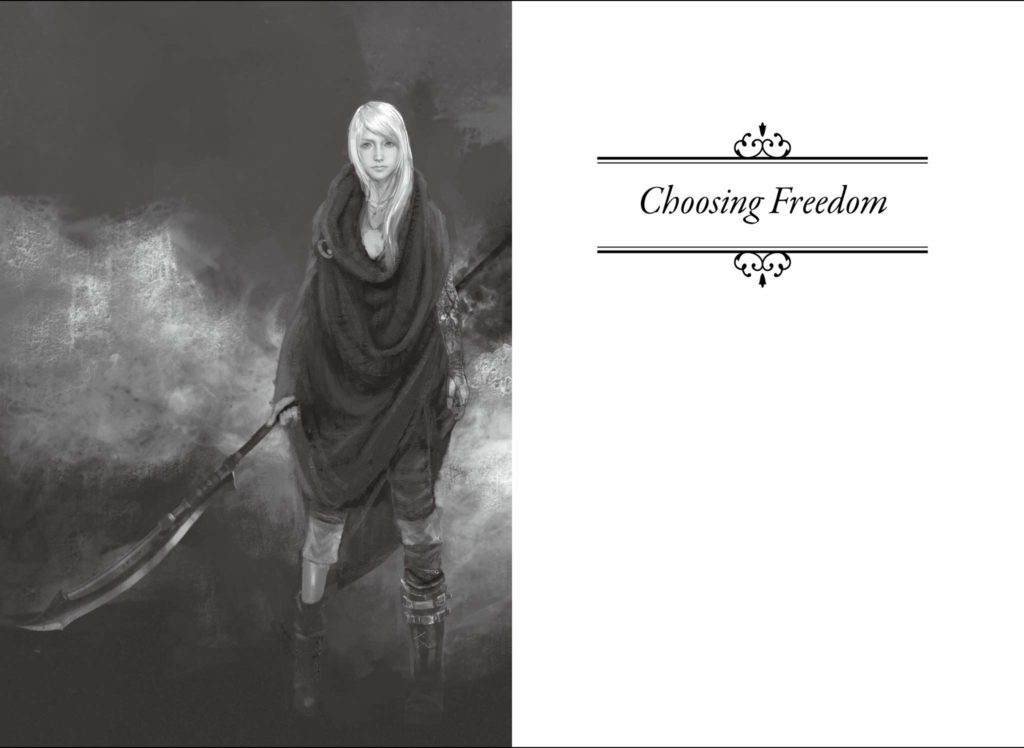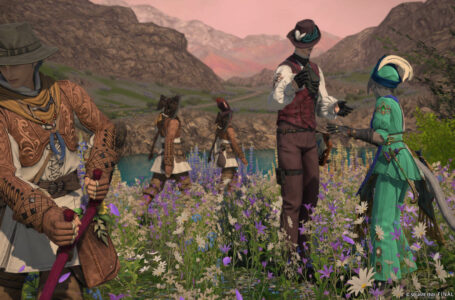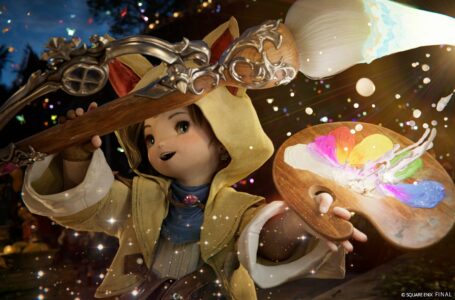Final Fantasy XV: The Dawn of the Future Review
Final Fantasy XV‘s story certainly isn’t perfectly delivered and so providing the final DLC in the form of a novel, grandly titled Final Fantasy XV: The Dawn of the Future, is far from the ideal conclusion.
The story of the main game has been roundly criticised for how much of it has been drip fed through a variety of mediums and, indeed, hardly makes sense without those additional stories. This is a little different, though, in that rather than simply filling gaps it seeks to enrich the patchwork story of gods, empires, and fate. But bringing an already flawed narrative to success in the form of literature, something a world away from the combat-heavy nature of a role playing game, is a challenge – and the result highlights the strengths and weaknesses of its foundations.
It’s pretty evident that the narrative is constructed from abandoned DLC even though it tries its best to be cohesive. The book is not a whole but made of four somewhat interlinked short stories, and they make for quite a mixture; they cross over two thousand years and explore personal tales, major moments rarely hinted at and, at points, radically alter everything put forward so far. Players of the story expansions that were actually released will know to expect some parts to feel more essential than others. I’ve tried reading the Final Fantasy XIII prequel novel “Episode Zero: Promise”, though, and this is much better than that: unlike that older release this collectively feels important rather than filler, even if its writing style and some simply weak story elements stop a consistently valuable read.

The writing style is, unfortunately, a bit of a chore to engage with; rather than feeling epic or philosophical it’s often condescending and devoid of nuance. Ironically, this makes itself very evident in over-laboured descriptions of all sorts, from mountains of exposition to character-building quirks, such as a weird lingering on Aranea’s distaste for popcorn, that don’t feel organically part of the tales. It’s an inevitable extension of this that means gameplay mechanics don’t smoothly make their way into the story; multi-round battles and repurposed objectives are particularly prominent reminders that this is a video game adaptation. The writing tells instead of showing because it doesn’t have the confidence to do anything new, and enjoyment despite this requires you to already care about this universe in all its weaknesses.
The justice that’s done to the characters is somewhat inconsistent, then, largely as a result of what’s already there. Ardyn is greatly entertaining and intriguing, but he is also the character with perhaps the strongest voice in the game proper. Aranea never moves beyond superficially interesting and likeable as a charming mercenary with a heart of gold. Luna gets some time to shine and a little volition amongst that, even if she’s too pure. It’s a patchwork universe of a half-empty world, quickly explained motivations, and infrequently-appearing people, but we’ve followed these characters for long enough – and learned enough about them through piecemeal storytelling – that we’re invested in where they’re heading.
And, like with any good Final Fantasy story, there are themes that act to make the weaker elements worthwhile; here they strengthen an abrupt original ending. Fate unsurprisingly carries on as the central theme, not just following on from XV but the franchise at large, yet this take questions everything we learned from what came before and appears all the more epic for it. These themes perhaps might be treated with too much reverence, philosophy butting heads with the absurdity of on-paper boss battles. The success of the themes lies, though, in questioning the meaning of its predecessor enough to not only counteract it in scale, but providing a heartening hopefulness which manages to be compelling and impressive regardless of anything else.
You won’t find in Final Fantasy XV: The Dawn of the Future a great work of literature, or something to elevate the brand of Final Fantasy at large, but here is something that is largely in tune with it. The structure and characterisation don’t always feel fully considered – and those are criticisms that could be easily levelled at the source material. There is undoubtedly greater weakness here, though, with the clunkiness of the tale highlighted by inept, imaginative and, sometimes, barely above transcriptive writing.
Despite these not insignificant flaws the narrative is layered enough to suggest craft, to make you care about the developments that occur and, occasionally, to reach a level of tremendous and valuable insight. The fact this imbalanced novel is how XV at large is put to rest reflects the awkward trajectory of tortured development and a uniquely weak instalment; yet those who have seen promise amidst its uncertain structure will find in this occasionally wondrous, unquestionably enriching reward.
Verdict: 3.5 / 5

Join The Discussion
Rice Digital Discord
Rice Digital Twitter
Rice Digital Facebook
Or write us a letter for the Rice Digital Friday Letters Page by clicking here!
Disclosure: Some links in this article may be affiliate links, which means we may earn a small commission if you make a purchase after clicking on them. This is at no additional cost to you and helps support Rice Digital!
- Final Fantasy XV: The Dawn of the Future Review - July 30, 2020
- Final Fantasy XV Is the Perfect Game for the Lockdown - May 5, 2020
- A Nier Sequel – Why Did Nier Automata Happen? - March 10, 2017





